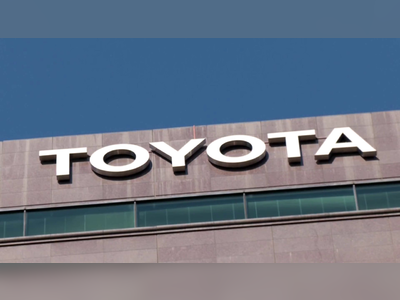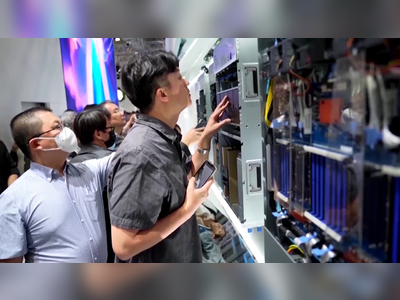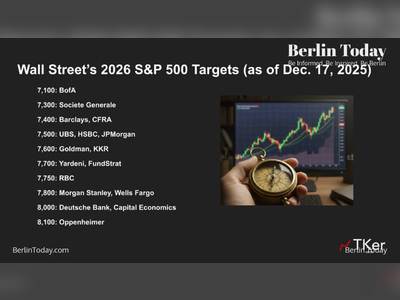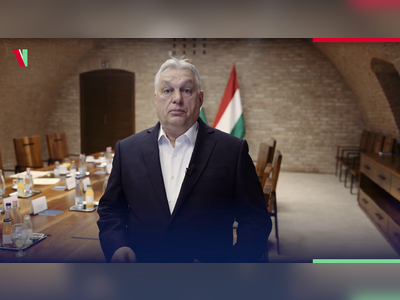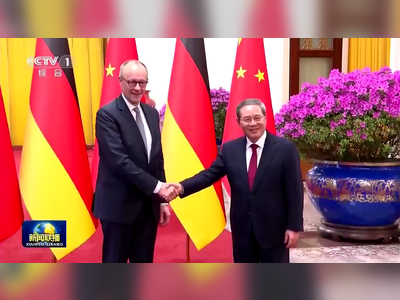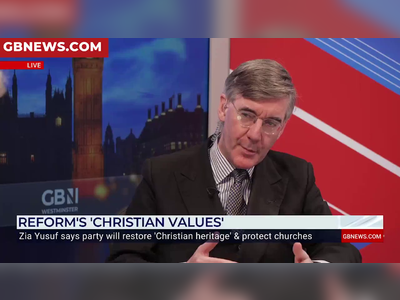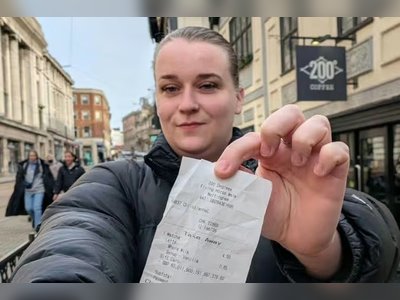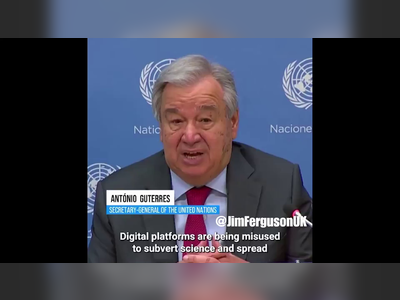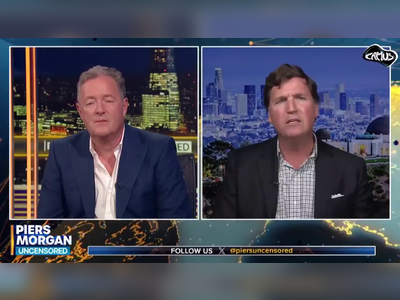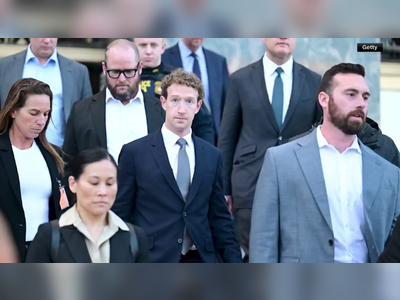Elon Musk's Dialogue with Alice Weidel Sparks Controversy in Germany
The Tesla CEO engages with the AfD leader in a contentious conversation on social media platform X.
In a development stirring debate across both sides of the Atlantic, Elon Musk, the influential CEO of Tesla and owner of social media platform X, engaged in a widely scrutinized conversation with Alice Weidel, leader of Germany's far-right Alternative for Germany (AfD) party.
The dialogue, spanning over 70 minutes, was marked by controversial statements on both sides, including factual inaccuracies that attracted significant media attention.
The discourse opened with Musk falsely claiming that Alice Weidel was the most popular chancellor candidate in Germany 'according to the polls.' In reality, Weidel's AfD is trailing behind the conservative Christian Democratic Union (CDU) by a margin of 11 points in national opinion polls, and Weidel herself ranks lowest in popularity among Germany's chancellor candidates for the upcoming February election.
A recent infratest dimap poll revealed that only 20% of Germans are satisfied with Weidel's performance— a statistic matched with the historically low approval ratings of current Chancellor Olaf Scholz from the center-left Social Democratic Party.
The conversation between Musk and Weidel was loaded with controversial claims.
Musk made inaccuracies such as theft being lawful in California, while Weidel astonishingly referred to Adolf Hitler as a communist.
The topics of discussion extended to Germany’s energy supply, nuclear power, immigration, and geopolitical issues like the conflicts in Ukraine and the Middle East.
Musk expressed optimism that former President Donald Trump could swiftly resolve these conflicts, while Weidel criticized what she termed as two decades of mismanagement in Germany.
Their discussion also touched on the bureaucratic challenges faced by businesses in Germany, a point Musk has experienced firsthand with his Tesla Gigafactory near Berlin, although he recognized the governmental support provided to the endeavor.
Musk diverged slightly from Weidel by affirming the benefits of renewable energy, although both agreed on reopening Germany's nuclear plants.
The dialogue, despite being marred by misunderstandings and bold, unsupported assertions, is being scrutinized for its potential impact on Weidel's campaign in the forthcoming election.
Observers like Bendix Hügelmann, a German political strategist, opined that Weidel might have missed an opportunity to bolster her public image.
Hügelmann noted a disparity in Weidel's delivery, contrasting her academic demeanor with Musk's conversational style.
The engagement drew a large online audience, with over 200,000 listeners initially tuning in, though interest waned as the talk shifted to Musk's space exploration ambitions.
Analysts like Philipp Adorf, a political scientist at Bonn University, suggested that Weidel was perhaps appealing to a U.S. audience, seeking to establish connections with prominent right-wing circles.
Yet, the interaction raised concerns about election interference, with some European Union officials speculating potential impacts on the German electoral process.
Weidel aimed to leverage the platform to reinforce her party's positions, although critics noted she engaged less on critical topics like immigration, a key agenda for the AfD.
In a grandiose finale, the discussion veered into philosophical realms, with Musk expounding on his scientific view of divinity, ultimately leading to Weidel concluding the conversation as 'beautiful.' The implications of this dialogue remain a topic of significant discourse across German and international spheres.
The dialogue, spanning over 70 minutes, was marked by controversial statements on both sides, including factual inaccuracies that attracted significant media attention.
The discourse opened with Musk falsely claiming that Alice Weidel was the most popular chancellor candidate in Germany 'according to the polls.' In reality, Weidel's AfD is trailing behind the conservative Christian Democratic Union (CDU) by a margin of 11 points in national opinion polls, and Weidel herself ranks lowest in popularity among Germany's chancellor candidates for the upcoming February election.
A recent infratest dimap poll revealed that only 20% of Germans are satisfied with Weidel's performance— a statistic matched with the historically low approval ratings of current Chancellor Olaf Scholz from the center-left Social Democratic Party.
The conversation between Musk and Weidel was loaded with controversial claims.
Musk made inaccuracies such as theft being lawful in California, while Weidel astonishingly referred to Adolf Hitler as a communist.
The topics of discussion extended to Germany’s energy supply, nuclear power, immigration, and geopolitical issues like the conflicts in Ukraine and the Middle East.
Musk expressed optimism that former President Donald Trump could swiftly resolve these conflicts, while Weidel criticized what she termed as two decades of mismanagement in Germany.
Their discussion also touched on the bureaucratic challenges faced by businesses in Germany, a point Musk has experienced firsthand with his Tesla Gigafactory near Berlin, although he recognized the governmental support provided to the endeavor.
Musk diverged slightly from Weidel by affirming the benefits of renewable energy, although both agreed on reopening Germany's nuclear plants.
The dialogue, despite being marred by misunderstandings and bold, unsupported assertions, is being scrutinized for its potential impact on Weidel's campaign in the forthcoming election.
Observers like Bendix Hügelmann, a German political strategist, opined that Weidel might have missed an opportunity to bolster her public image.
Hügelmann noted a disparity in Weidel's delivery, contrasting her academic demeanor with Musk's conversational style.
The engagement drew a large online audience, with over 200,000 listeners initially tuning in, though interest waned as the talk shifted to Musk's space exploration ambitions.
Analysts like Philipp Adorf, a political scientist at Bonn University, suggested that Weidel was perhaps appealing to a U.S. audience, seeking to establish connections with prominent right-wing circles.
Yet, the interaction raised concerns about election interference, with some European Union officials speculating potential impacts on the German electoral process.
Weidel aimed to leverage the platform to reinforce her party's positions, although critics noted she engaged less on critical topics like immigration, a key agenda for the AfD.
In a grandiose finale, the discussion veered into philosophical realms, with Musk expounding on his scientific view of divinity, ultimately leading to Weidel concluding the conversation as 'beautiful.' The implications of this dialogue remain a topic of significant discourse across German and international spheres.
Translation:
Translated by AI
AI Disclaimer: An advanced artificial intelligence (AI) system generated the content of this page on its own. This innovative technology conducts extensive research from a variety of reliable sources, performs rigorous fact-checking and verification, cleans up and balances biased or manipulated content, and presents a minimal factual summary that is just enough yet essential for you to function as an informed and educated citizen. Please keep in mind, however, that this system is an evolving technology, and as a result, the article may contain accidental inaccuracies or errors. We urge you to help us improve our site by reporting any inaccuracies you find using the "Contact Us" link at the bottom of this page. Your helpful feedback helps us improve our system and deliver more precise content. When you find an article of interest here, please look for the full and extensive coverage of this topic in traditional news sources, as they are written by professional journalists that we try to support, not replace. We appreciate your understanding and assistance.
